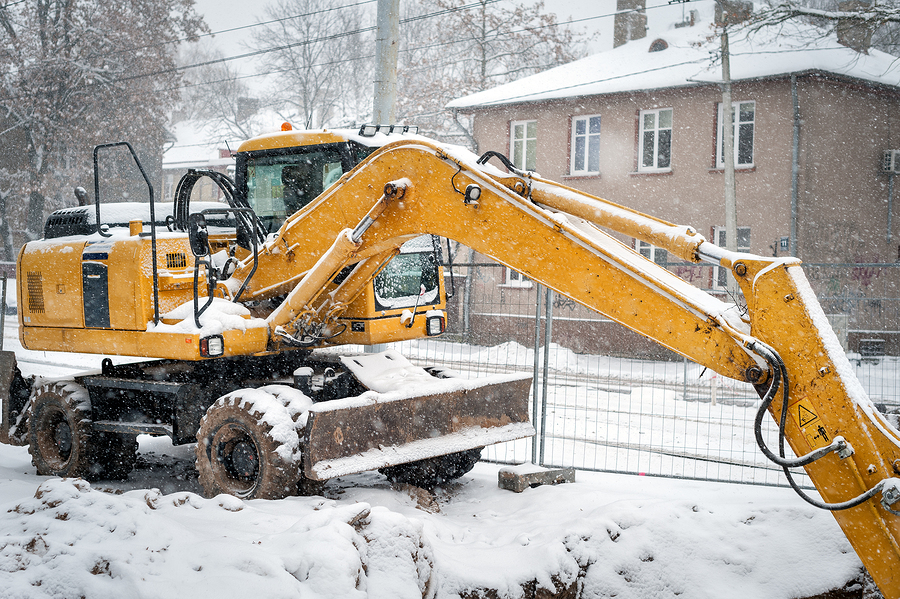Keeping construction equipment in good shape over the winter is essential for maintaining profits. Good winterization ensures that everything will be in good running order when it’s time to start up again in the spring, and that winter equipment like snow plows will also work well when you need them. Winterizing lets you do more projects and keep your business strong. When you winterize, it saves you from costly, unexpected maintenance or replacement of your machinery.
Here at Vandalia Rental, we are very aware of what is needed to winterize and protect equipment from the elements. This is why we are able to rent out machinery to our customers as soon as the weather becomes good again. Here are some of the key practices that we have learned throughout our years in business. Use these tips to keep your company’s owned equipment in good condition:
Use a Lower-Viscosity Oil
To prevent unnecessary engine wear, you need to use a motor oil that will flow as soon as you turn your machine on. Avoid the common practice of using thick oil and then waiting for it to warm up in the winter. Instead, use lower-viscosity oil so it protects the engine sooner. The reduction in engine wear will allow your machine to last longer. Winterize like this and you’ll benefit long past winter.
Change the oil before and after the winter season. With each change, be sure to use the viscosity that matches the upcoming season. Resist the temptation to use low-viscosity oil all year ’round; some machines do need a thicker variety in the spring and summer.
Winterize Your Coolant Ratio to Match the Expected Temperatures
The ratio of water to anti-freeze/anti-boil needs to be adjusted to meet the expected temperatures of the winter. In many areas, a 50/50 mix will do well. However, in extremely cold climates, this may not be strong enough to stop the water from freezing. For machines used in these places, winterize with a 70/30 mix, with the majority being the anti-freeze.
Check the Battery and Electrical System
Before and during the winter, check the electrolyte levels of your equipment’s batteries to make sure they are at the proper amounts. It’s also a good idea to check the alternator to ensure that it is working well. These simple checks will help to prevent the nasty surprise of equipment that won’t turn on right as you’re trying to get to a job.
Keep an Eye on the Tires
If you use tire-mounted equipment, be sure to check for both wear and air pressure before and during the winter. Cold weather causes tires to lose air pressure, so make an extra check on particularly chilly days.
Pay Extra Attention to Fuel
When fuel tanks aren’t completely filled, condensation can collect inside of them and their fuel lines. This can cause corrosion, freezing, and other harmful effects. One of the easiest ways to prevent this is to keep the tanks filled all the way up, especially when the equipment is in storage. You can also winterize by putting in fuel additives that help stop condensation and prevent freezing in the lines and fuel filters. For winter operation, keep an extra fuel filter handy just in case one does freeze and you don’t have time to thaw it out.
One way to avoid all of this maintenance is to rent your warm weather equipment instead of owning it outright. We will have done all of this and more, so when you rent from us, all you’ll need to do in the spring is turn the key. To learn more, just contact us. We’ll be glad to provide the equipment you need – when you need it.


